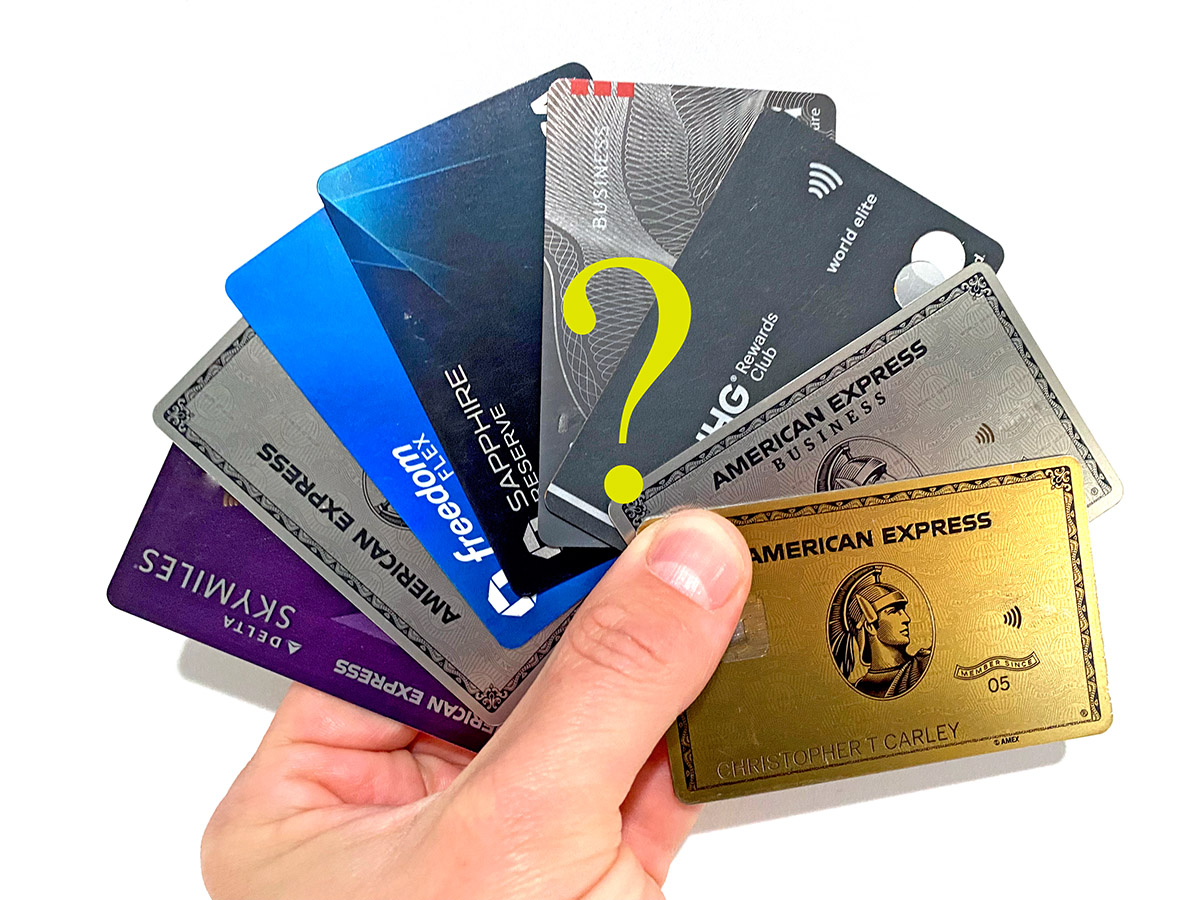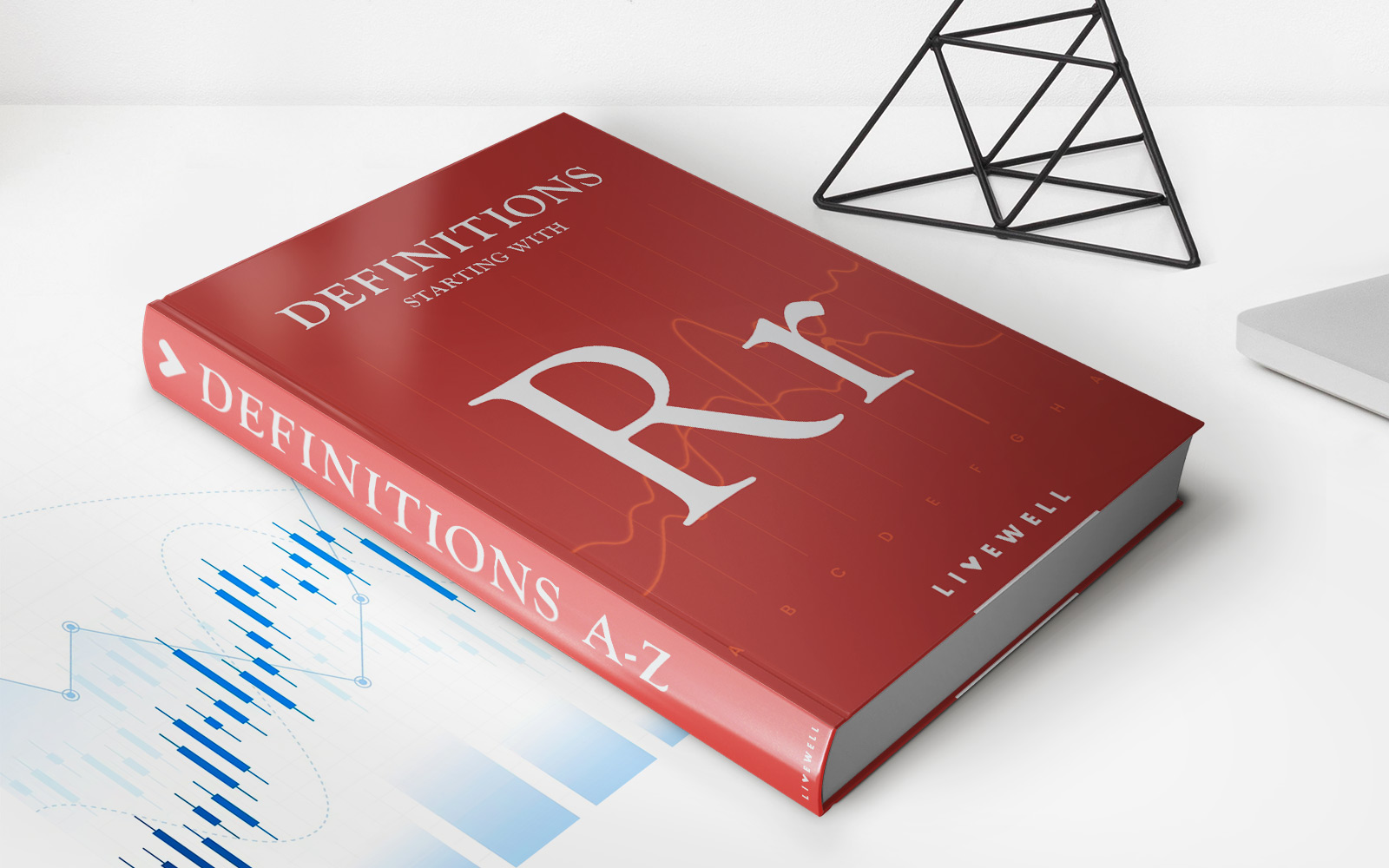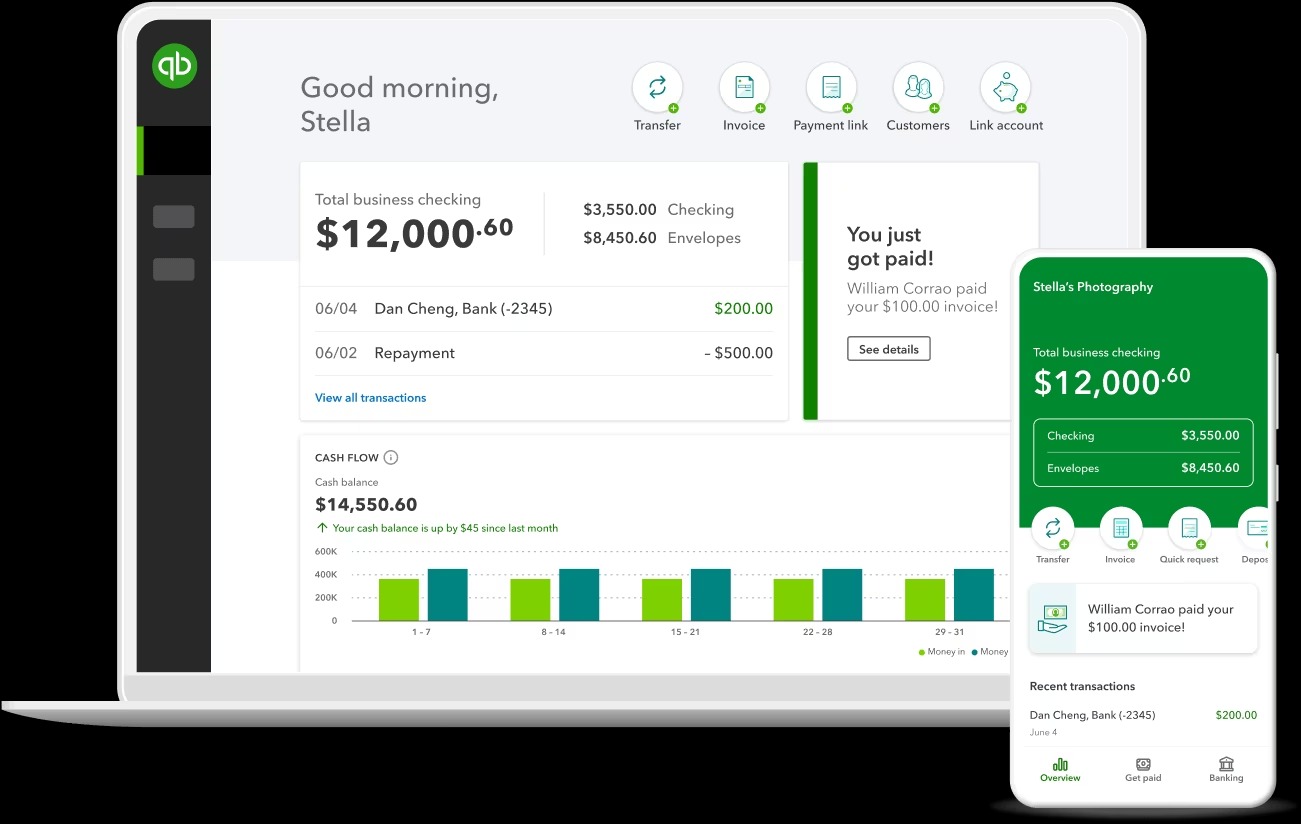

Finance
What Is The Best Credit Card
Published: November 9, 2023
Discover the best credit card options for managing your finances and maximizing rewards. Compare rates, benefits, and features to find the perfect fit for your financial goals.
(Many of the links in this article redirect to a specific reviewed product. Your purchase of these products through affiliate links helps to generate commission for LiveWell, at no extra cost. Learn more)
Table of Contents
Introduction
Welcome to the world of credit cards! Whether you’re a seasoned pro or new to the world of personal finance, choosing the right credit card can be a daunting task. With numerous options available, it’s important to understand the factors to consider in order to make an informed decision.
Credit cards provide a convenient and flexible way to make purchases, allowing you to buy now and pay later. Beyond their basic function, credit cards also offer a plethora of rewards, benefits, and perks that can enhance your financial life. From cash back on purchases to travel rewards and exclusive access to events, credit cards have evolved into much more than just a payment tool.
However, not all credit cards are created equal. Each card has its own set of terms, conditions, fees, and interest rates. Understanding these details will help you find the credit card that aligns with your financial goals and lifestyle. Whether you’re looking to earn rewards, build credit, or manage your finances more effectively, there’s a credit card out there that’s perfect for you.
In this article, we will dive into the factors to consider when choosing a credit card, the various types of credit cards available, how to compare interest rates and fees, and the importance of using credit cards responsibly. By the end, you’ll have the knowledge and confidence to select the best credit card that suits your needs.
So, if you’re ready to embark on this financial journey, let’s explore the world of credit cards and find that perfect card for you!
Factors to Consider in Choosing a Credit Card
When it comes to choosing a credit card, there are several important factors to consider. The right credit card for you will depend on your unique financial situation, spending habits, and goals. Here are some key factors to keep in mind:
- Interest Rates: One of the most crucial factors to consider is the interest rate charged on the credit card. If you plan to carry a balance from month to month, it’s important to find a card with a low annual percentage rate (APR) to minimize interest charges.
- Rewards and Benefits: Credit card rewards programs can be a major advantage, allowing you to earn cash back, points, or miles on your purchases. Consider your spending habits and choose a card that offers rewards that align with your preferences, such as travel rewards for frequent flyers or cash back for everyday spending.
- Fees: Be aware of any fees associated with the credit card, such as annual fees, foreign transaction fees, balance transfer fees, or late payment fees. Take into account these costs and determine if the benefits outweigh the fees.
- Credit Limit: Consider the credit limit offered by the card. A higher credit limit can increase your purchasing power, but it’s important to ensure you can manage your spending and payments responsibly.
- Customer Service: Pay attention to the customer service provided by the credit card issuer. It’s valuable to have access to responsive and supportive customer service representatives who can assist you with any concerns or inquiries.
- Issuer Reputation: Research the reputation of the credit card issuer. Look for a company with a track record of excellent customer service, reliability, and transparent policies.
By considering these factors, you can narrow down your options and find a credit card that aligns with your financial goals and lifestyle. Remember, the best credit card for you is the one that meets your needs and helps you achieve your financial aspirations.
Rewards and Benefits of Credit Cards
One of the most appealing aspects of credit cards is the rewards and benefits they offer. These perks can make your everyday spending more rewarding and can even save you money. Here are some common rewards and benefits to consider when choosing a credit card:
- Cash Back: Many credit cards offer cash back rewards on purchases. This means that for every dollar you spend, you earn a certain percentage back as cash rewards. Cash back rewards can be redeemed as statement credits, checks, or even direct deposits into your bank account.
- Travel Rewards: If you’re a frequent traveler, consider a credit card that offers travel rewards. These rewards can include things like airline miles, hotel points, or discounts on travel-related expenses. Travel rewards can help you save money on flights, accommodations, and other travel expenses.
- Points Programs: Some credit cards offer points programs where you earn points for every dollar spent. These points can be redeemed for a wide range of options, including merchandise, gift cards, and even experiences like concert tickets or spa treatments.
- Introductory Offers: Many credit cards entice new customers with attractive introductory offers, such as 0% APR on purchases or balance transfers for a certain period of time. These offers can save you money on interest charges or help you consolidate and pay off existing debt faster.
- Insurance Coverage: Some credit cards provide insurance coverage for travel, rental cars, or purchases made with the card. These insurance benefits can provide peace of mind and potentially save you money on additional insurance policies.
- Concierge Services: Premium credit cards often offer concierge services that can assist with travel bookings, restaurant reservations, event tickets, and more. These services can save you time and provide added convenience.
Keep in mind that rewards and benefits can vary greatly between credit cards, so it’s important to choose a card that aligns with your spending habits and lifestyle. Consider your priorities and preferences when it comes to earning and redeeming rewards, and weigh the value of the benefits offered against any associated fees.
By taking advantage of credit card rewards and benefits, you can make your purchases work for you and enhance your overall financial experience.
Types of Credit Cards
Credit cards come in various types, each catering to different needs and financial goals. Understanding the different types of credit cards can help you choose the one that best suits your lifestyle and spending habits. Here are some common types of credit cards:
- Rewards Credit Cards: These cards offer rewards, such as cash back, travel points, or merchandise, based on your spending. Rewards credit cards are ideal for those who want to earn something back on their purchases.
- Travel Credit Cards: Designed for frequent travelers, these cards offer travel-related benefits like airline miles, hotel points, airport lounge access, and travel insurance. Travel credit cards often have partnerships with specific airlines or hotel chains, allowing you to maximize your rewards within their network.
- Balance Transfer Credit Cards: These cards allow you to transfer existing high-interest credit card debt to a new card with a low or 0% introductory APR. Balance transfer credit cards can help you save money on interest and pay off your debt more efficiently.
- Student Credit Cards: Designed for college students or young adults with limited credit history, student credit cards offer lower credit limits and often come with educational resources to help build responsible credit habits. These cards can be a stepping stone towards building a strong credit profile.
- Secured Credit Cards: Secured credit cards are a good option for individuals with poor or no credit history. They require a cash deposit as collateral, which serves as your credit line. Secured credit cards help you build or rebuild credit by demonstrating responsible card usage and payment history.
- Business Credit Cards: Business credit cards are designed for small business owners and offer benefits and rewards tailored to business expenses. They can provide expense tracking, employee spending controls, and rewards on business-related purchases.
There are also store-specific credit cards, premium or luxury credit cards, and cards specifically designed for specific rewards programs like dining or gas rewards. Each type of credit card serves different purposes and offers unique benefits.
Before deciding on a type of credit card, consider your spending habits, financial goals, and overall needs. Determine which features and benefits are most valuable to you and select a card that aligns with your priorities.
Remember, regardless of the type of credit card, it’s crucial to use it responsibly, make timely payments, and avoid accumulating debt beyond your means to repay.
Comparing Interest Rates and Fees
Interest rates and fees are important factors to consider when choosing a credit card. They can significantly impact the overall cost and value of the card. Here’s what you need to know to make an informed decision:
Interest Rates: The interest rate, also known as the annual percentage rate (APR), is the cost of borrowing on the credit card. It is charged on any outstanding balance that you carry from month to month. It’s essential to compare the APRs of different credit cards and choose one with a lower rate to minimize interest charges.
While some credit cards offer attractive introductory APRs, it’s important to check the regular APR — the rate that will apply after the introductory period ends. Bear in mind that a higher APR means more interest on any unpaid balance.
Annual Fees: Some credit cards charge an annual fee for the privilege of using the card. Annual fees can range from a few dollars to several hundred dollars, depending on the type of card and the benefits it offers. Consider the benefits and rewards associated with the card to determine if the annual fee is justified by the value you will receive in return.
If you prefer to avoid annual fees, there are many no-fee credit card options available. However, keep in mind that cards with no annual fees might offer fewer additional perks and benefits compared to their fee-based counterparts.
Foreign Transaction Fees: If you frequently travel internationally or make purchases in foreign currencies, keep an eye out for foreign transaction fees. Some credit cards charge a fee, typically around 2-3% of the transaction amount, for purchases made outside your home country. Look for credit cards that have no foreign transaction fees if you plan to use your card abroad often.
Balance Transfer Fees: If you’re considering transferring a balance from one credit card to another, be aware of balance transfer fees. These fees are usually a percentage of the balance being transferred and can impact the potential savings you may achieve by transferring your debt to a card with a lower interest rate. Look for cards with low or no balance transfer fees if you are planning to consolidate your debt.
Compare the interest rates and fees associated with different credit cards to find the option that minimizes costs and provides the greatest value for your needs. Keep in mind that it’s crucial to read and understand the terms and conditions of each card, including the fine print, before making a decision.
By carefully considering interest rates and fees, you can select a credit card that aligns with your financial goals and minimizes unnecessary costs.
Building Credit with a Credit Card
One of the key benefits of having a credit card is the opportunity to build a positive credit history and improve your credit score. Building credit is crucial for future financial endeavors and can open doors to better interest rates and loan approvals. Here’s how you can effectively build credit with a credit card:
Make Timely Payments: The most important factor in building credit is consistently making your credit card payments on time. Late or missed payments can have a significant negative impact on your credit score. Set up automatic payments or reminders to ensure you never miss a payment.
Keep Your Credit Utilization Low: Credit utilization refers to the percentage of your available credit you are currently using. It’s generally recommended to keep your credit utilization below 30% to maintain a healthy credit score. Be mindful of your spending and aim to pay off your credit card balance in full each month.
Pay More Than the Minimum Payment: While making the minimum payment is necessary to keep your account in good standing, paying more than the minimum can help you pay off your debt faster and demonstrate responsible credit management to lenders.
Monitor Your Credit Report: Regularly review your credit report to ensure all the information is accurate and up to date. Look out for any discrepancies or errors that could negatively impact your credit score. You can obtain a free copy of your credit report from each of the three major credit bureaus once a year.
Avoid Opening Too Many Credit Accounts: While having multiple credit accounts can diversify your credit profile, opening too many accounts within a short period can raise concerns for lenders. It’s best to start with one or two credit cards and build a positive credit history with responsible usage before considering additional accounts.
Choose a Credit Card that Reports to Credit Bureaus: Not all credit cards report your activities to credit bureaus. When building credit, it’s important to select a credit card that reports your payment history to credit bureaus. This allows your responsible credit usage to be reflected in your credit report and positively impact your credit score.
Building credit takes time and consistent effort. By using your credit card responsibly and making timely payments, you can establish a solid credit history, improve your credit score, and position yourself for better financial opportunities in the future.
Tips for Using Credit Cards Wisely
While credit cards can be powerful financial tools, they require responsible and wise usage. Here are some tips to help you effectively manage your credit cards and avoid common pitfalls:
- Create a Budget: Before using your credit card, set a budget to ensure you can comfortably afford your purchases. Track your expenses to avoid overspending and accumulating debt.
- Pay Your Balance in Full: Whenever possible, pay off your credit card balance in full each month. By doing so, you’ll avoid interest charges and maintain control over your finances.
- Avoid Minimum Payments: Pay more than the minimum payment required to reduce your debt faster. Minimum payments may only cover interest charges, resulting in a never-ending cycle of debt.
- Monitor Your Statements: Regularly review your credit card statements to spot any unauthorized charges or billing errors. Report any discrepancies to your credit card issuer immediately.
- Avoid Cash Advances: Cash advances often come with high fees and interest rates. Use your credit card for purchases rather than using it as a source of cash.
- Be Mindful of Credit Score Impact: Every time you apply for a new credit card, the issuer pulls your credit report. Multiple credit inquiries in a short period can negatively impact your credit score. Apply for new credit cards strategically.
- Don’t Max Out Your Credit Limit: Keep your credit utilization ratio below 30% to maintain a good credit score. Maxing out your credit limit can signal financial distress to lenders.
- Avoid Impulse Purchases: Think twice before making impulsive purchases with your credit card. Consider if the item is necessary and within your budget. Impulse purchases can lead to regret and unnecessary debt.
- Stay Aware of Payment Due Dates: Late payments can result in late fees and damage your credit score. Set up reminders or automatic payments to ensure you never miss a payment.
- Be Cautious with Balance Transfers: While balance transfers can offer temporary relief from high-interest debt, they often come with transfer fees and promotional periods. Read the terms and conditions carefully before proceeding.
By following these tips, you can use your credit cards wisely, avoid overspending, and maintain a healthy financial foundation. Credit cards can be valuable tools when used responsibly, providing convenience, security, and the opportunity to build a positive credit history.
Conclusion
Choosing the right credit card is an important decision that can greatly impact your financial well-being. By considering factors such as interest rates, rewards, fees, and benefits, you can find a credit card that aligns with your needs and goals.
When using a credit card, it’s essential to practice responsible financial management. Making timely payments, keeping your credit utilization low, and monitoring your credit report are all crucial steps in building a positive credit history.
While credit cards offer convenience and rewards, it’s important to avoid excessive debt and overspending. Create a budget, be mindful of your expenses, and use your credit card wisely to maintain control over your finances.
Remember, the best credit card for you will depend on your unique circumstances and priorities. Take the time to compare different options, read the terms and conditions, and choose a credit card that suits your lifestyle and financial goals.
By utilizing credit cards responsibly and making informed decisions, you can enhance your financial well-being, build a strong credit profile, and unlock potential benefits and rewards along the way. So, go ahead and explore the world of credit cards with confidence, knowing that you have the knowledge to make wise choices that align with your financial aspirations.














